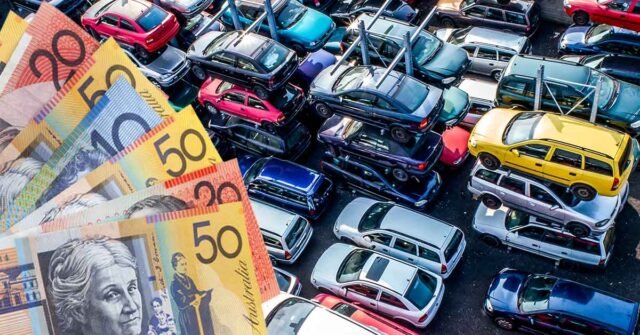Selling a car for cash is not just about handing over the keys and accepting payment. It involves a few important steps that are often overlooked, especially when it comes to insurance and registration. These two elements can create legal and financial issues if not handled properly.
Whether the car is in good shape, damaged, or no longer roadworthy, you need to ensure all details are closed correctly before the car changes hands. This article explains how to deal with both insurance and registration during the cash sale process in Australia.
Step 1: Notify Your Insurance Provider
The first thing you should do after selling your car is contact your insurance company. It is your responsibility to inform them that you no longer own the vehicle. This stops the policy from continuing and ensures you are not liable for anything that happens with the car in the future.
Why this matters:
- You may be eligible for a refund on any unused portion of your premium
- It protects you from claims if the car is involved in an incident after the sale
- It helps avoid any mistaken auto-renewals or ongoing charges
You will usually need to provide:
- Policy number
- Date of sale
- Details of the buyer (optional but useful)
- A request to cancel or transfer the policy
Some insurers allow this online, while others may require a call or written notice.
Step 2: Cancel or Transfer the Registration
Car registration is handled by each state’s transport authority in Australia. You must either cancel the registration or transfer it to the buyer, depending on the condition of the car and your agreement with the buyer.
If the car is being sold for scrap or parts, the registration should usually be cancelled.
When to cancel registration:
- The car is being sold to a wrecking yard
- It is not in running condition
- You plan to keep the number plates
To cancel registration, you will need to:
- Submit a cancellation form (available on your state’s transport website)
- Return the number plates
- Provide proof of identity and vehicle ownership
When to transfer registration:
- The car is being sold to another driver and is still roadworthy
- The buyer wants to use the car immediately
- Both parties agree to a standard transfer
In this case, a transfer of ownership form needs to be completed and submitted. Depending on the state, there may be fees or inspection requirements.
Visit for more info: https://onspotcashforcars.com.au/cash-for-cars-greenbank/
Step 3: Keep Records of the Sale
It is always wise to keep a written record of the transaction, especially if you are dealing with a private buyer. Even if the car is being collected for parts, a receipt can help prevent confusion later.
The record should include:
- Date of sale
- Seller and buyer names
- Description of the vehicle (make, model, VIN, and rego number)
- Amount paid
- Any agreed condition of the vehicle
This document protects you in case the buyer fails to update registration or commits a traffic offence with the car before the transfer is processed.
Step 4: Remove the Car from Tolls or Parking Accounts
If your car is registered with toll road services like Linkt or other automatic payment systems, remember to remove it from your account. You should also remove saved number plates from any parking apps or services.
Leaving the car linked to your name might result in unpaid tolls or parking fines being sent to your address.
Important Timing Note
Make sure to cancel insurance and registration after the car has been handed over and payment is received. Doing this too early can leave you exposed in case the sale falls through or the buyer delays pick-up.
On the other hand, waiting too long increases your risk, so these tasks should be completed on the same day the car leaves your possession whenever possible.
Related Scenario: When Selling to Car Wreckers
There are many situations where people sell vehicles that are no longer roadworthy or complete. In such cases, car wreckers often step in to collect these vehicles for dismantling or recycling. This is common in places like Brisbane, where sellers may have an old or damaged vehicle that no longer serves any purpose.
In such cases, a service like car wreckers Brisbane can help you finalise the process without delay. These buyers often accept cars in various conditions and manage removal themselves. When using such services, always confirm whether the registration needs to be cancelled on your end or if they handle it as part of the process.
Can You Sell an Unregistered Car?
Yes, you can legally sell an unregistered vehicle in Australia. However, the buyer must know that the car does not have valid registration, and they must arrange transport using a tow truck or trailer. The sale of unregistered vehicles is more common when dealing with dismantlers or metal recyclers, especially for cars that no longer drive.
If you plan to cancel the registration, make sure to complete the paperwork first, then remove and return the plates.
What Happens to Insurance if the Buyer Crashes the Car After Purchase?
Once you have sold the car and notified your insurance company, your responsibility ends. If the buyer causes an accident, it is no longer your liability. However, if the car is still registered in your name, issues may arise. This is why it is important to transfer or cancel the registration immediately after the sale.
In rare cases, if a delay happens and something goes wrong, you might receive traffic or toll notices in the mail. Always keep proof of sale, cancellation, or transfer to show you are no longer the owner.
Summary Checklist
Before completing a cash car sale, make sure you:
- Receive full payment
- Remove personal items
- Complete a proof of sale document
- Notify your insurance provider
- Cancel or transfer the registration
- Remove the car from toll and parking systems
Taking these steps ensures the sale is final, clean, and does not leave you with unexpected legal or financial issues.







